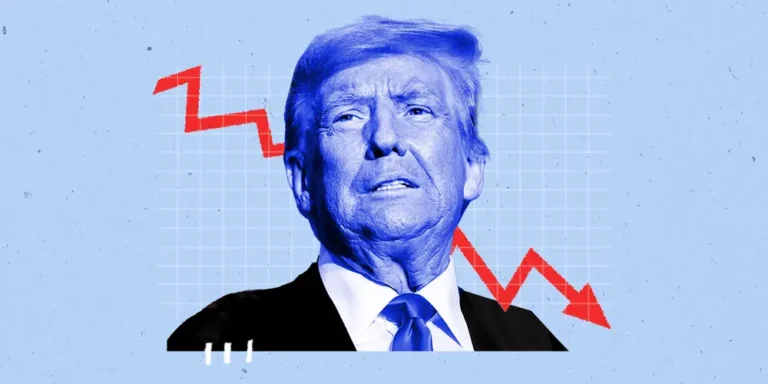Here are 7 smart ways to invest in China even as the country’s potential property crisis unfolds, according to UBS

- China is suffering from an economic slowdown as its largest property developers falter.
- The nation’s stocks have trailed their US counterparts this year, but UBS sees opportunities.
- Here are the seven smartest ways to invest in Chinese markets, according to UBS.
Chinese stocks are struggling as the country deals with slower GDP growth and a weakening property market, but UBS still sees opportunities in the world’s second-largest economy.
The Shanghai-based SSE Composite Index is up only 2.3% in 2023, compared to the S&P 500’s 16.3% gain. Investors have been scared away by China’s sluggish economic recovery and the problems of property development behemoths Evergrande and Country Garden, which are struggling to finance their massive debt loads after the government restricted how much developers can borrow.
Because real estate is the backbone of the Chinese economy, the sharp drop in loan demand last month has sent shockwaves throughout the People’s Republic. And, after years of overbuilding, Evergrande and Country Garden can no longer simply build new homes.
“They can’t grow out of it through more housing or homebuilding because that would just make the problem worse,” David Kelly, chief global strategist at JPMorgan Asset Management, told Insider in late August. “It’s difficult to see how China can get out of this.”
Stimulus should keep Chinese stocks from sinking
UBS, on the other hand, believes that much of the pain has already been priced into Chinese stocks. Due to new government policies aimed at stimulating growth, the Swiss firm has a “most preferred” view on stocks in emerging markets, including China — though it still advises caution.
“We have to admit that we have turned a little bit cautious on this stance,” said Xingchen Yu, an emerging markets strategist at UBS’s CIO Americas arm, in a recent interview with Insider. “Our base case remains that policy support can assist markets in turning around sentiment, but it must be forceful and timely.”
In the last three weeks, Chinese stocks have enjoyed a modest relief rally after Beijing relaxed capital market restrictions, margin trading rules, and the definition of a “first-time homebuyer.” These measures, in addition to boosting the economy, can help calm investors, according to Solita Marcelli, chief investment officer for UBS’s global wealth management arm, in a late August note.
Although many US-based money managers are still wary of China’s economy, consumer sentiment is improving, as are imports and manufacturing activity. While an economic boom is unlikely to occur anytime soon, Yu expects the expansion to accelerate.
“We see that we have passed the worst of the slump, but conditions do not yet suggest a strong or V-shaped recovery,” Yu said. “That is why we believe more policy support should come, and fortunately, it has already begun.”
Similarly, China will not flood its economy with stimulus in the same way that the United States did during the pandemic, but Yu believes the government will do enough to instill confidence and stabilize domestic demand.
“Markets will probably have to recognize that the likelihood of massive stimulus — broad-based, bazooka-style — is low,” Yu said. “However, with some targeted, accurate, and forceful measures to address current issues, it is still possible to turn the tide.”
Naturally, China’s property market turmoil has prompted comparisons to the US housing market bubble that led to the global financial crisis, but Yu believes such concerns are exaggerated.
“The government has the toolkit to minimize the risk of having something that is systematically disastrous in the financial markets,” Yu explained. “Of course, there is always a limit.” That is why they have been extremely sensitive in attempting to resolve the issues as soon as possible.”
7 top ways to invest in China now
Chinese stocks are not without risk, particularly as tensions with the US over Taiwan rise. However, given the low valuations, Yu believes that avoiding China entirely is a mistake.
“Saying China is uninvestable — I think that’s a bit extreme, but I would like to acknowledge that the geopolitical risk premium has definitely increased over the years,” Yu said.
“Even if we don’t expect valuations to return to historical averages, there’s still some room for valuations, for valuation multiples to re-rate,” Yu added.
Investors interested in China should use a barbell portfolio that includes stocks linked to economic growth as well as those with defensive qualities that can withstand any environment, according to Yu. This balanced approach helps to mitigate uncertainty, which the People’s Republic is rife with.
According to UBS, if China’s growth exceeds expectations, companies in the consumer discretionary and materials sectors will benefit the most. E-commerce stocks, which are currently trading far below their historical average valuations, would benefit as well.
In contrast, the firm believes that utilities stocks and those with consistent, growing dividends will outperform during a prolonged economic slowdown. Marcelli’s note also mentioned companies in the online gaming and advertising industries as defensive standouts compared to other Chinese internet stocks, citing their strong cash flows and limited overseas exposure.






